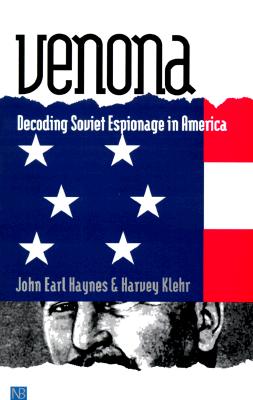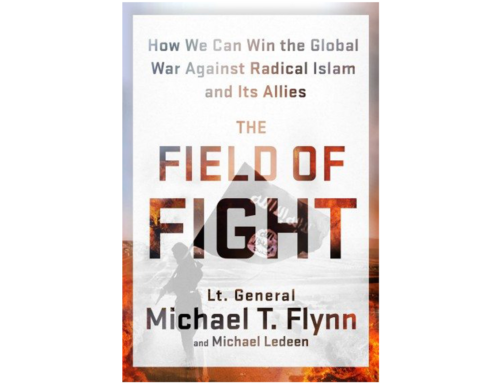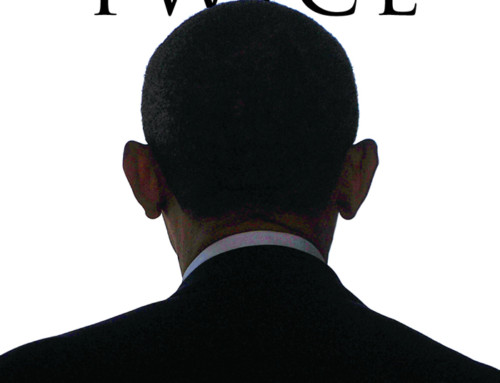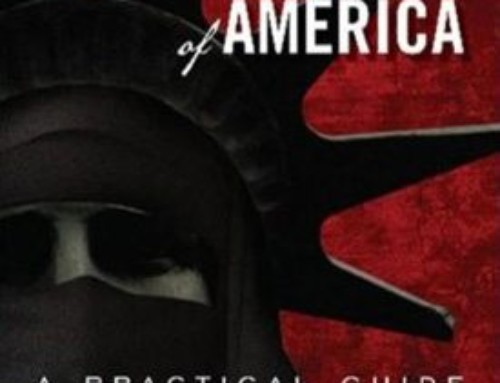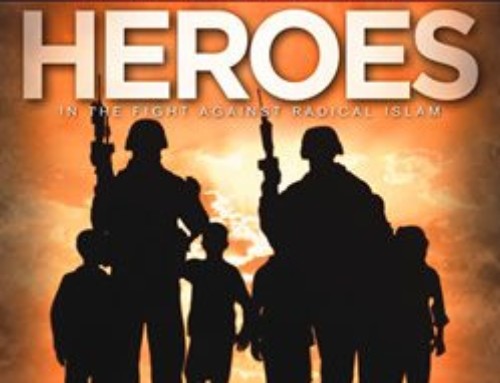Venona and In Denial
Books by Earl Haynes and Harvey Klehr
John Carey is the newly anointed president of the Bush-lied opposition. But now that the Iraqi Governing Council has approved a bill of rights and the most democratic constitution in the Arab world, informed, principled objections to the success of the Iraq war continue to evaporate, leaving only a sludge of unconscionable partisanship and its near alloy, anti-Americanism.
 Two books, Venona, published in 1999, and its companion, In Denial published last year, by historians, John Haynes and Harvey Klehr, provide a definitive account of the early, cold war espionage offensive conducted by the Soviet Union against the U.S. and also answer two very timely questions, what is the genesis of our home-grown anti-Americanism? and how pervasive is it now ? The two books are must reading not only for students about to embark on a four-year indoctrination at one of the nation’s radicalized universities, but also for their concerned parents.
Two books, Venona, published in 1999, and its companion, In Denial published last year, by historians, John Haynes and Harvey Klehr, provide a definitive account of the early, cold war espionage offensive conducted by the Soviet Union against the U.S. and also answer two very timely questions, what is the genesis of our home-grown anti-Americanism? and how pervasive is it now ? The two books are must reading not only for students about to embark on a four-year indoctrination at one of the nation’s radicalized universities, but also for their concerned parents.
Venona reads as if it were two parts history and one part spy novel but is without any partisan jabs, even though the source documents provide such rich opportunities. For example, we find that the KGB often referred to Western organizations or persons who were Soviet aligned by using the same word that Howard Dean used to refer to his devoted voters, Progressives (Carey instead cautiously refers to his voters’ progressive values). The code name given to Julius Rosenburg by his Soviet handlers was Liberal.
Readers not previously steeped in the history of the cold war or who are not old enough to remember its early days will probably know something about the convicted Soviet traitors, Julius and Ethel Rosenberg and Alger Hiss. But many of us, especially those who were educated by what the authors refer to as the revisionist, pro-Marxist historians, would very likely question whether or not the Rosenbergs and Hiss were truly guilty of treason and might well suspect that they were instead victims of some McCarthy-esque witch hunt.
Haynes and Klehr, armed with newly released Venona documents, nail the coffin shut on the hard-left revisionists’ hope that history would somehow prove their heroes innocent. One the book’s more compelling character and plot developments is that of Alger Hiss who was possibly the highest-level American traitor since Benedict Arnold to have ever been uncovered working for a hostile foreign power.
The press coverage of the House Committee on Un-American Activities (HUAC) took on an almost Shakespearean aspect pitting the former partners in crime, Chambers the accuser, against Hiss the accused. The country was enthralled. True to form, many in the press sided with Hiss. Although the statute of limitations on his espionage crimes had run out, in 1950, he was convicted of perjury and served only three and half years in prison. The government prosecutors knew Hiss was guilty due to the Venona decryptions but that evidence was never introduced at trials or in hearings because the Truman and successive administrations wanted to keep the project secret. Consequently, for the next 40 years, Hiss became one of the icons of the left. Until Venona was published four years ago, American History professors, in published articles and in history texts largely treated Chambers as a deranged snitch and Hiss a tragic heroic victim. Evidence was never conclusive the revisionist historians and their supporters would claim and nevertheless they said, the Soviets really meant well.
In Venona, Haynes and Klehr produce the deciphered cables combined with records they found within the Soviet archives that prove Hiss, the Rosenburgs, and a whole host of defendants who appeared before the HUAC hearings, people such as Lauchlin Currie, administrative assistant to the President, and Henry White, Assistant Secretary of the Treasury were not just traitors but ran networks of spies. A small portion of one deciphered cable sent from the KGB office in Washington to Moscow on March 5th, 1945 reads,
“As a result of a A’s chat with Ales, (other Soviet archival evidence reveal that “A” was the illegal KGB officer, Iskhak Akhmerov. Ales was Hiss’s code name.) Ales has been working with the GRU continuously since 1935…The group (Hiss’s network) and Ales himself work on obtaining military information only…Recently Ales and his whole group were awarded Soviet decorations.”
 After Venona, if one reads In Denial: Historians, Communism and Espionage, he or she will understand how today well-meaning anti-war liberals will take to the streets and join protest marches organized by the openly neo-Marxist, anti-U.S. groups like ANSWER. The authors explain that the generation which fought and won World War Two, by the mid 50s, were able to see through the false promise of collectivization, and condemned the dwindling U.S. Communist Party membership to irrelevance. But the sons and daughters of the Rosenbergs’ movement, who inherited the belief system which held that American capitalist imperialism must be overthrown, found safe, anti-capitalist cocoons in academia, and, like a vast collection of sleeper cells, were reawakened by the anti-war movement of the late sixties.
After Venona, if one reads In Denial: Historians, Communism and Espionage, he or she will understand how today well-meaning anti-war liberals will take to the streets and join protest marches organized by the openly neo-Marxist, anti-U.S. groups like ANSWER. The authors explain that the generation which fought and won World War Two, by the mid 50s, were able to see through the false promise of collectivization, and condemned the dwindling U.S. Communist Party membership to irrelevance. But the sons and daughters of the Rosenbergs’ movement, who inherited the belief system which held that American capitalist imperialism must be overthrown, found safe, anti-capitalist cocoons in academia, and, like a vast collection of sleeper cells, were reawakened by the anti-war movement of the late sixties.
As the authors put it, the current revisionist historians, are the literal or ideological children of the Communists of the 30s, 40s and 50s. David Horowitz in Radical Son and Ronald Radosh in Commies tell their respective stories of how the anti-U.S./anti-capitalist torch was passed from their pro-Stalinist parents to the following pro-Brezhnev generation of American Communists. And it was those zealots who were catapulted to positions of prominence by the Viet Nam War and the counter-culture. Today’s tenured professors at our leading universities, together with their slavish sycophants in the media, are important cultural gate keepers, legitimizing and fomenting anti-Americanism and multiplying their numbers by propagandizing both our youth and the public.
One comes away from reading In Denial understanding that the anti-American revisionists are not a fringe group. Haynes and Klehr name scores of revisionist professors, who hold the most prestigious positions at our leading university history departments and who are regular contributors to their industry’s professional journals. They are among the country’s most acclaimed professors, writers and editors who openly lament that the wrong side won the cold war and who proclaim, as fact, that while the Communist tyrannies were struggling to perfect socialism, it was U.S. imperialism and McCarthyism that were the true threat to humanity. Paying homage to Lenin in their lectures and essays, they often aver that the writing of history is not a scholarly pursuit but a political act.
To understand how deeply they’ve penetrated our collective grasp of American history, in In Denial, Haynes and Klehr point to leading history texts, produced at tax-payer expense, such as the most recent edition of the prestigious, American National Biography (ANB), an authoritative historical reference guide. The ANB entry which chronicles the Rosenberg case was written by a devout Stalinist and revisionist, Norman Markowitz, who posits that the Rosenbergs were executed because they were orthodox Jews and demonizes those who conclude they were guilty of espionage. The authors write, “The ANB’s entry on the Rosenberg’s will distort the historical understanding of (college) students for several generations to come.”
While subverting the loyalties of college students is one objective, the subversion of our children is primary. The federally funded National History Standards for elementary schools teachers, references McCarthy over 20 times but there is no mention of Thomas Edison or the Wright brothers. It refers to the Hiss and Rosenberg cases in language“…crafted to keep from implying guilt…urging teachers to show students how their cases contributed to the rise of McCarthyism.”
In summary, for many of us, it has been both appalling and a mystery as to why the left, through its candidate spokesmen, exhibit such a hatred of this President. After all, government spending on key leftist agendas is skyrocketing. As I finish this review, the cause of that unmitigated hate dawns on me. Bush’s war on terror inspires among the electorate, a growing patriotism. And in this arena, the American left of today knows it simply can’t even compete.
I caught up with John Haynes at his office at the manuscripts division at the Library of Congress and asked him what he felt are the lessons implicit in his research of the cold war, as it pertains to our current war on terror. He told me that in his view, it is very difficult for us to win the war of ideas and to mount a major ideological challenge to the power of anti-Americanism in the third world when you have leaders in the American academic, cultural, and media fomenting ant-Americanism. “I’m a firm believer that ideas count and that bad ideas have bad consequences,” he said.

